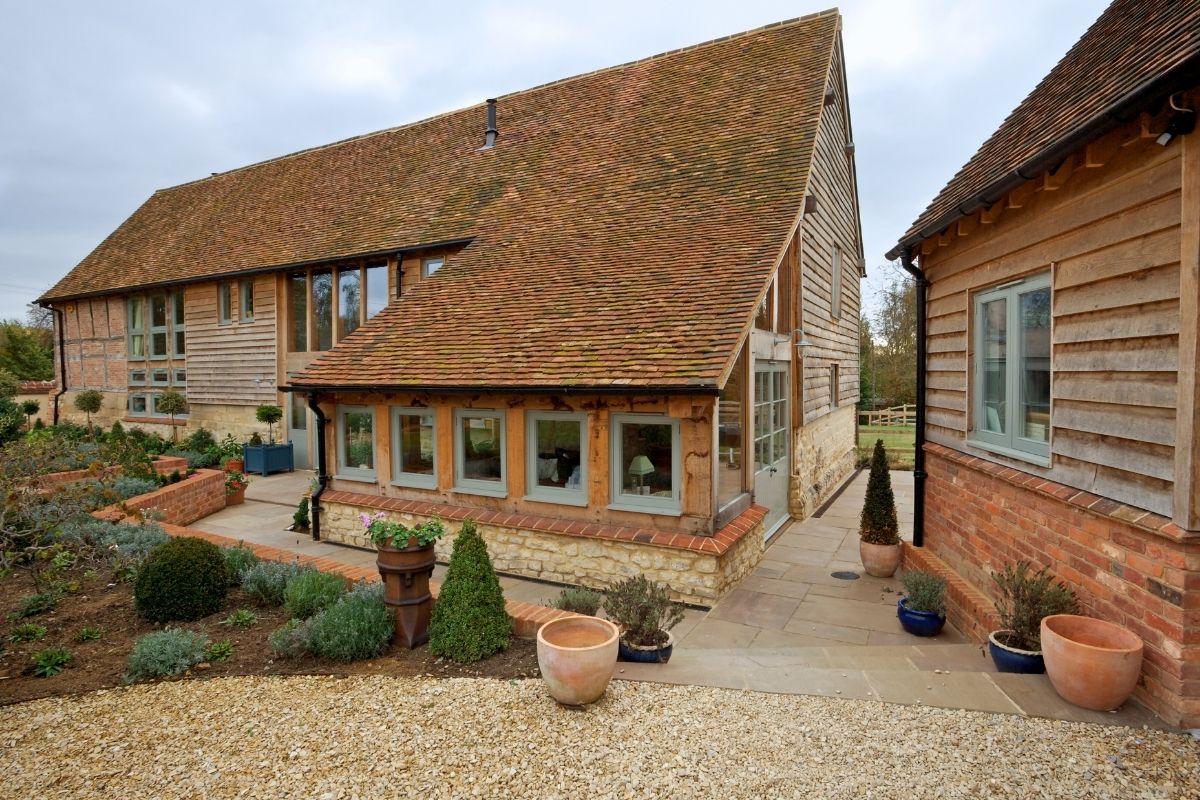
A barn can be the perfect shell in creating your home, and they’re increasingly popular in the UK. They give the opportunity to create a house with big expanses of space and high ceilings. And by retaining the original form and structure, they add character, history and charm to your otherwise modern home.
How much will a barn conversion cost?
This depends on various factors, but barn conversions are generally pricier than new builds per square metre. Expect to pay around £1500 per square metre. It’s costly to upgrade whilst retaining the existing structure and fabric of a barn. But of course, the history and character it preserves is priceless.
How to I get building regulations approval for a barn conversion?
There are three routes to obtain building regulations approval for your conversion:
- A ‘building notice’ is where you give notice to the council that works are about to begin. This is the fastest way, although there is more of a risk that you will be asked to change parts of the design as you go. This route is suitable for small extensions.
- A ‘full plans’ application to the council means you submit plans and details for approval before work commences. Once submitted, the decision takes 5 weeks minimum. When work on the site starts, regular inspections will take place.
- Using an ‘approved inspector’ – a private individual or organisation who ensure that your project complies with the building regulations. An approved inspector can be invaluable if your proposals push the boundaries of the ‘approved documents’, and they will be on your side to make sure your proposals comply with regulations.
Do I need planning permission for barn conversions?
Permitted development rights were extended in 2014 to allow agricultural buildings to be converted into homes. But with every case there are still particular rules and restrictions, and there’s a possibility that permitted development rights won’t be applicable to your project.
Other types of converted properties
There are plenty of more community-based buildings which can be and have been converted. Churches, small schools, pubs and factories are increasingly converted into residential buildings. Water towers can even be converted, creating multi-storey dwellings of beauty.





